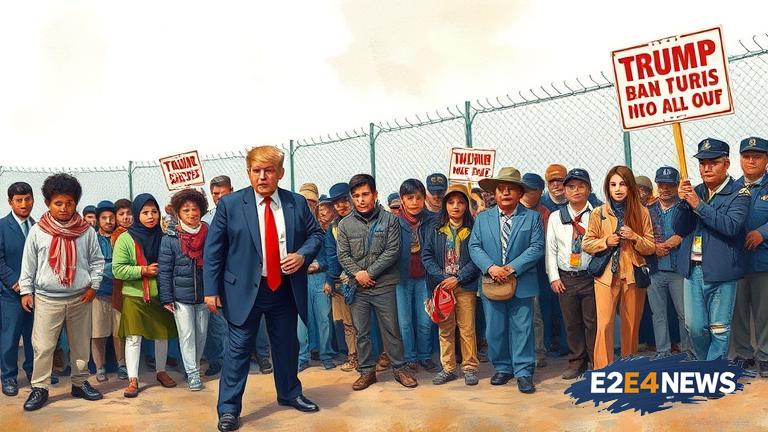The Trump administration recently announced a significant policy change targeting illegal immigrants, effective immediately. This new regulation prohibits individuals without legal status from gaining employment within the United States. Additionally, access to public benefits such as healthcare and education will be restricted. The administration aims to deter illegal immigration by limiting opportunities and resources for those without proper documentation. The policy is part of a broader effort to enforce immigration laws more strictly. Legal challenges are anticipated, with advocacy groups planning to contest the move in court. Supporters argue that the policy will protect jobs for American citizens and reduce the financial burden on taxpayers. Critics, however, claim it will harm the economy by reducing the workforce and push vulnerable individuals into poverty. The policy also faces opposition from business groups concerned about labor shortages. The Trump administration has consistently taken a hardline stance on immigration, implementing various measures to curb illegal entry and tighten border security. This latest move aligns with that strategy, emphasizing enforcement over pathways to citizenship. The impact on immigrant communities is expected to be severe, with many facing difficult choices regarding their livelihoods. The policy’s effectiveness in reducing illegal immigration remains uncertain, as similar past efforts have had mixed results. The debate over immigration continues to be a contentious issue in American politics, with no clear resolution in sight. As the policy rolls out, its implications for both immigrants and native-born citizens will be closely watched.
